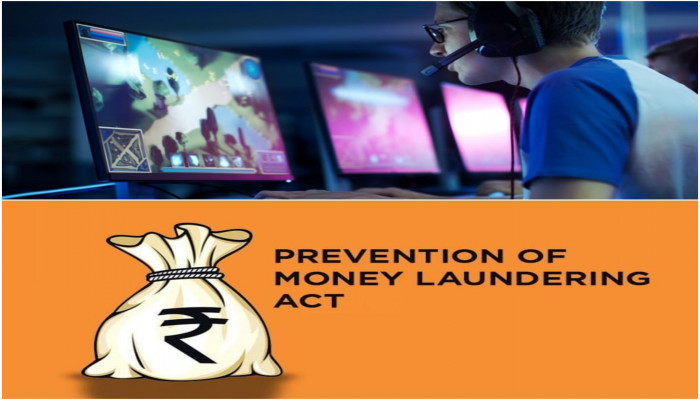Online gaming to come under PMLA scanner as government tightens financial regulation
- In Reports
- 04:00 PM, Apr 08, 2025
- Myind Staff
The central government is close to finalising a plan to bring online real-money gaming platforms like Dream11, Games24x7, and Winzo under anti-money laundering regulations. This move would require these companies to follow stricter rules, including verifying users through KYC and monitoring and reporting any suspicious transactions, according to information obtained by The Indian Express.
The proposal, led by the Ministry of Finance and currently undergoing inter-ministerial review, aims to classify these gaming firms as “reporting entities” under the Prevention of Money Laundering Act (PMLA), 2002. Under the PMLA, banks, financial service providers, and certain businesses are reporting entities and must follow specific rules, such as maintaining detailed records and reporting financial activities. Under the PMLA, a reporting entity must provide details about its clients and their transactions to the Financial Intelligence Unit-India (FIU-IND), which operates under the Ministry of Finance. It must also meet several compliance requirements, such as keeping records of all transactions, maintaining documents that verify the identity of clients and beneficial owners, and preserving account files and business-related communication with its clients.
The move will also require compliance with anti-money laundering and counter-terror financing rules, in line with the standards set by the Financial Action Task Force (FATF), the global watchdog on money laundering. In 2023, the Finance Ministry took a similar step by designating virtual digital assets (VDAs) as reporting entities, a move directed at cryptocurrency companies.
If this new measure goes through, it would be the second significant action targeting gaming firms, following the imposition of a 28 per cent Goods and Services Tax (GST) on users’ full deposits on such platforms in 2023. It also comes after the IT Ministry introduced regulations for the gaming sector, which are still stuck due to procedural hurdles and haven’t yet been enforced.
“We believe there is a lot of unaccounted money circulating within the online gaming apps, and that has to be curtailed. So, the government is moving to bring them under the PMLA ambit and require them to track and report suspicious transactions,” a high-ranking government official, who wished to remain anonymous, made the statement.
A March 2025 report by FICCI and EY revealed that online gaming companies in India generated nearly $2.7 billion in revenue during 2024. These platforms usually earn by taking a share of users' winnings. The report also highlighted that over 155 million Indians participated in real money games like fantasy sports, rummy, poker, and other transaction-based formats in 2024, a 10% rise compared to 2023. On average, about 110 million people played these games every day.
Industry insiders from Indian gaming firms noted that while local companies will comply with the PMLA regulations, they're worried that offshore gambling and betting apps might not follow the same rules, a concern they had also expressed when the 28% GST was introduced.
“By conservative estimates, there is anywhere around $25 billion to $30 billion worth of money that is circulating on these offshore betting platforms. Much of that is unaccounted for because the government currently does not have a way to rein them in. While the domestic gaming companies are subjected to onerous requirements, with first the GST and the potential inclusion in PMLA, the offshore firms are making a lot of money,” stated a senior gaming industry executive.
The government has been cracking down on online gaming companies that violate compliance rules. Earlier this month, it told Parliament that the IT Ministry had issued over 1,400 orders to block websites related to online betting, gambling, and gaming between 2022 and February 2025. Additionally, the Directorate General of GST Intelligence (DGGI) has taken action by blocking over 350 links to illegal and non-compliant offshore online money gaming platforms.
Still, gaming executives pointed out that blocking these platforms might not work. The executive mentioned earlier explained, “Blocking their domains has also not been effective since they create new landing pages within minutes of being taken down.”
A major part of the industry's troubles comes from the fact that the IT Ministry's attempt to regulate the online gaming sector through changes to the IT Rules has not been effective and lacks proper enforcement power.
In April 2023, the ministry introduced new rules for online gaming, including provisions for setting up self-regulatory bodies to review the legitimacy of games under the supervision of the government.
However, the ministry rejected some of the self-regulation proposals, expressing concerns that they might be influenced by the gaming industry, leading to potential conflicts of interest.
In an ongoing case before the Madras High Court, which is reviewing challenges to Tamil Nadu’s online gaming law, the IT Ministry stated that the relevant provisions in the IT Rules are still “unenforceable” because no self-regulatory bodies have been officially designated.







Comments